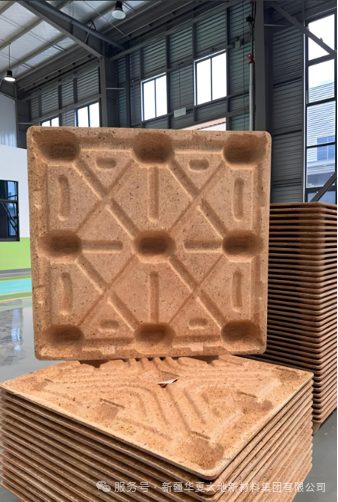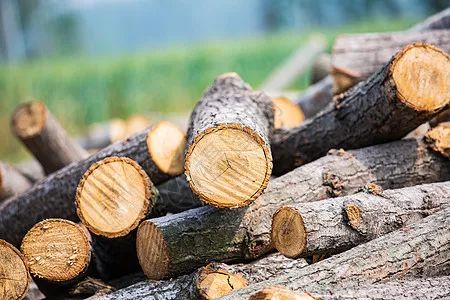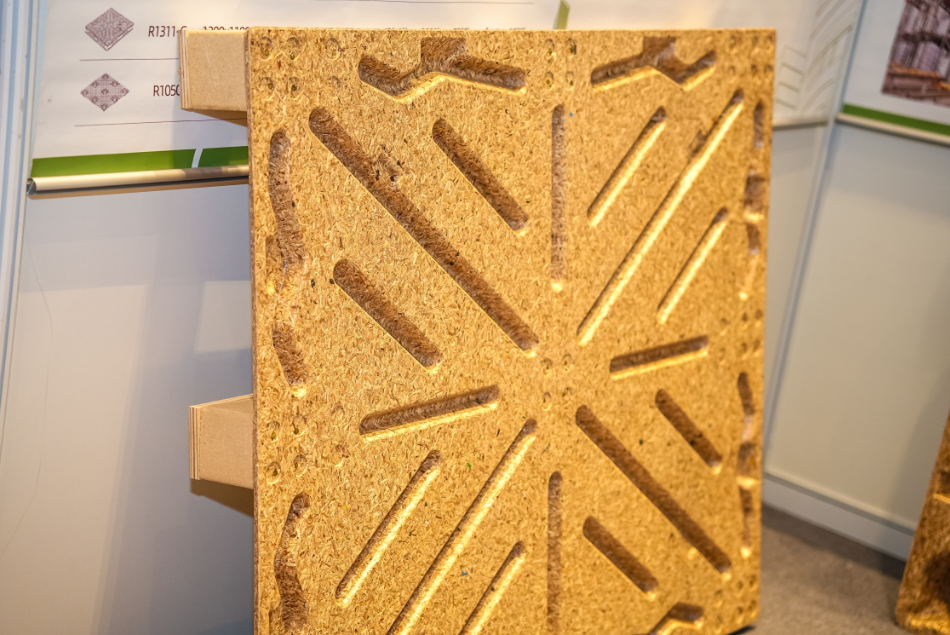Molded Tray Project

According to statistics, China's timber imports were 63.58 million cubic meters in 2021, 43.70 million cubic meters in 2022, only 38.02 million cubic meters in 2023, and merely 27.52 million cubic meters in 2024. From the data, it can be seen that there is a sharp decline trend.
Nowadays, the alarm bells about timber resources have been ringing everywhere. Climate change, the increase in pests, and the rampant infestation of beetles have led to the premature felling of a large number of immature trees. Europe is striving to achieve its carbon neutrality goal and is reducing tree felling. Russia, since 2022, has completely banned the export of unprocessed logs, directly cutting off part of the supply chain. Although Canada and the United States can still provide timber, the problem is that the prices of these timbers are high, and their cost-effectiveness is far inferior to the "cheap timber" of the past.
Although the global timber resources as a whole have not been exhausted yet, the supply of those low-cost and high-quality woods is gradually drying up. From the current market perspective, the global supply of cheap timber resources will continue to decrease. The traditional wooden pallet industry is currently under unprecedented pressure, and the pallet industry is about to undergo significant changes.

I. The Challenge of Cheap Wood to the Pallet Industry
Cost increase: The rise in wood prices directly led to an increase in the production cost of pallets, thereby reducing the profit margins of enterprises.
Supply chain instability: The shortage of timber and price fluctuations have made the supply chain more vulnerable, affecting the stability of pallet supply.
Quality control deterioration: Some enterprises, in an effort to cut costs, began to use lower-quality wood, which affected the durability of the products and consequently increased the risks in logistics transportation.
Environmental pressure: The depletion of forest resources and the enhanced environmental awareness have led to the introduction of stricter policies on timber logging and trade by various countries, further exacerbating the shortage of timber supply.

II. Advantages and Market Prospects of Molded Pallets
The molded trays are made from renewable materials (such as recycled wood, straw, etc.) through high-temperature and high-pressure molding, and have the following significant advantages:
Environmental sustainability: Utilizing waste resources, reducing deforestation, and conforming to the concept of circular economy. High durability: Waterproof, moisture-proof, pest-proof, with a long service life, reducing long-term costs for customers. High cost-effectiveness: Low raw material costs, high production efficiency, and more competitive prices. Lightweight and easy to transport: Light in weight, convenient to operate, improving logistics efficiency. Customizable: Can be customized according to customer needs in terms of size and carrying capacity, meeting diverse demands. With these advantages, the market demand for molded pallets continues to grow, and is expected to maintain a rapid development trend in the coming years.
III. Transformation and Future Outlook of the Tray Industry
Nowadays, with the increasingly widespread global environmental protection concepts and the rapid development of the logistics industry, molded pallets, due to their significant advantages, are leading the pallet industry towards a greener, more efficient and sustainable future. The rise of molded pallets will bring about the following changes in the pallet industry:
Customer choice shift: An increasing number of customers will opt for environmentally friendly, durable, and cost-effective molded pallets. Market share reconfiguration: Molded pallets will gradually replace some traditional wooden pallets and occupy a larger market share. Industry pattern reshaping: Enterprises with the production capacity for molded pallets will gain greater development space. Sustainable development: The popularization of molded pallets will drive the pallet industry towards a more environmentally friendly and sustainable direction.
Project Introduction
In the world of logistics and transportation, pallets serve as the key carriers for stacking and transporting goods, and their importance is self-evident. In recent years, our company's newly developed molded pallets have emerged as a new force, bringing revolutionary breakthroughs to the logistics packaging industry.
The rise of new packaging materials
Molded pallets, also known as plant fiber molded flat industrial pallets, are the rising stars in China's logistics packaging industry. They ingeniously utilize agricultural and forestry crop waste and are processed through special techniques. This innovative approach not only solves the problem of handling agricultural and forestry waste but also opens up a new path for environmentally friendly packaging materials.
Significant cost advantages
Cost is a key consideration for enterprises when choosing packaging materials. Molded pallets demonstrate significant advantages in this regard, with production costs and selling prices being approximately 40-50% lower than those of wooden pallets. For the logistics transportation packaging industry, this means that while maintaining packaging quality, it can significantly reduce costs and improve operational efficiency, making it the preferred choice for enterprises seeking cost-effectiveness.
Mass customization production
We have a strong production capacity, capable of producing 4,500 molded pallets daily, sufficient to meet large-scale market demands. Moreover, we fully respect the diverse needs of market customers and can produce corresponding molds as per their requirements. Whether it's large-sized for transporting large equipment or small-sized for packaging delicate products, it can precisely meet the requirements.
Product features are prominent:
1. Environmental Pioneer: Using agricultural and forestry waste as raw materials reduces reliance on wood, contributing to the protection of forest resources. Moreover, the product is recyclable, aligning with the current green development concept and adding points to the company's sustainable development.
2. Outstanding Performance: Stable load-bearing capacity, able to support various heavy loads without failure, ensuring transportation safety; excellent dimensional stability, not prone to deformation, ensuring the original shape and specifications are maintained during multiple handling and long-term storage; flat and stiff surface, making the stacking of goods more orderly, and facilitating the operation of automated packaging and handling equipment.
3. Cost Savings: In the storage stage, due to its excellent dimensional stability and stackability, it can effectively save storage space; in logistics transportation, the relatively light self-weight reduces transportation energy consumption and lowers logistics costs. Additionally, it overcomes the defect of wood's dry shrinkage and wet expansion, avoiding tray damage and goods loss caused by environmental humidity changes. Moreover, unlike traditional wooden trays that require fumigation treatment when exported, it saves time and costs.
Expansion of diverse sales channels:
1. Local and Surrounding Areas: Leveraging the rich agricultural resources of Tacheng, local and surrounding agricultural product processing and logistics storage enterprises become the primary service targets. By taking advantage of the local supply of straw raw materials, transportation costs are reduced, providing more cost-effective products for the enterprises, achieving mutual benefit and win-win results. Currently, in the Urumqi-Chengdu economic belt, mature sales channels have been established with chemical plants, providing stable supply of high-quality molded trays.
2. Export Industry: For export enterprises, the non-fumigation and degradable characteristics of molded trays become the "winning formula". They can easily replace traditional wooden trays, meeting the environmental protection certification requirements for cross-border logistics, helping export goods smoothly pass through global markets, breaking through green barriers in trade.
3. Connecting Green Industrial Chains: Keeping pace with the "carbon neutrality" policy, actively integrating packaging demands of enterprises in new energy equipment manufacturing, green building materials, etc. With its negative carbon attribute, it aligns with the environmental protection concepts of these enterprises, jointly promoting the development of the green industry.
Molded trays, with their advantages in environmental protection, cost, and performance, as well as diversified and precise sales channel layout, are gradually emerging in the logistics packaging market. It is believed that in the future, it will shine in more fields, leading the logistics packaging industry towards a green and efficient new era.


